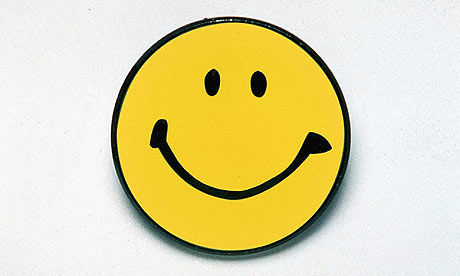
A public experiment designed to lift the nation's spirits has reported its hopeful conclusions – that smiling, counting your blessings and reliving happy memories will make you happier.
The Science of Happiness study said thinking of a positive thing that happened the day before was by far the most effective way for people to cheer themselves up.
It could be something as simple as a great cup of coffee or meal, watching a good film or television programme, or things going well at work.
But – depressingly – one strategy predicted to boost mood was found to be counterproductive, because performing small acts of kindness turned out to have a negative impact on happiness.
Richard Wiseman, the Hertfordshire University professor who designed the research, said: "All of the techniques, including the control, resulted in a reported rise in happiness.
"However, thinking about one positive thing that had happened the day before appears to have been by far the most effective technique. This quick and simple procedure provided an additional 15% boost in happiness.
"We often don't relive positive events from the previous day, so when we do they are still vivid in our minds."
However, he said he was baffled by the finding that acts of kindness reduced happiness by 8% compared with the control group. "Perhaps we are a selfish nation," he said.
The psychologist said he was amazed by the number of people who took part in the online study – 26,000 participated – and "very happy" with the results.
Wiseman asked volunteers to complete an online happiness survey, after which they were randomly assigned into one of five groups.
They were then shown one of four videos describing a common mood-enhancing technique and asked to report back in a week.
One urged them to smile as they went about their daily routine, and another suggested they performed random acts of kindness.
The other two videos encouraged them to express gratitude about something good in their life or focus on something that had gone well in the last 24 hours.
Because people "catch" the emotions of those around them, researchers hoped the increased happiness of their volunteers might help cheer up the nation.
To test that theory, they commissioned a survey on the weekends before and after the study asking a representative sample of around 2,000 people to rate how cheerful they felt.
The results revealed a 7% increase in cheerfulness after the experiment.
"Obviously it is impossible to say if this rise is due to the study," Wiseman said. "After all it might be caused by many different factors, including world events or changes in the weather.
"However, we like to think that we played some role in helping put a smile on the nation's face."

